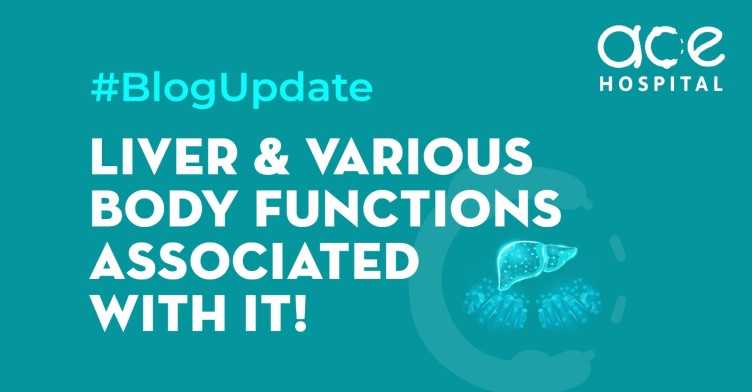The liver is a vital organ that performs several crucial functions in the human body. It is the largest internal organ, located in the upper right quadrant of the abdomen, and weighs around three pounds.
The liver is responsible for processing nutrients, detoxifying harmful substances, and regulating several metabolic processes.
In this blog post, we will explore the various body functions associated with the liver.
- Metabolism of Nutrients:
Your liver plays a crucial role in the metabolism of carbohydrates, proteins, and fats. It stores and releases glucose as needed to maintain a steady supply of energy for your body. It also converts excess glucose into glycogen for storage.
The liver produces bile, a digestive fluid that helps in the absorption of fats and fat-soluble vitamins. Bile is stored in the gallbladder and released into the small intestine during digestion.
Your liver also synthesizes proteins, including blood-clotting factors, albumin, and other essential proteins required for your body’s proper functioning.
- Detoxification:
Your liver is responsible for detoxifying your body by breaking down and eliminating harmful substances. It filters out toxins from your blood, including drugs, alcohol, and other chemicals.
The liver converts ammonia, a toxic waste product produced by your body, into urea, which is excreted in your urine. It also breaks down hemoglobin, the protein in red blood cells that carries oxygen, into its component parts, including bilirubin, which is excreted in your bile.
- Immune System Function:
Your liver plays an essential role in your body’s immune system by producing immune factors and removing bacteria and other foreign substances from your blood.
It also produces acute-phase proteins, which are proteins that increase in response to inflammation or infection, helping to fight off infections and promote healing.
- Regulation of Blood Sugar:
Your liver plays a crucial role in regulating blood sugar levels in your body. It stores and releases glucose as needed to maintain a steady supply of energy for your body.
It also produces hormones that regulate blood sugar levels, including insulin, glucagon, and growth hormone. These hormones help to control the amount of glucose in your blood, preventing it from reaching dangerous levels.
- Storage of Vitamins and Minerals:
Your liver stores several essential vitamins and minerals, including vitamins A, D, E, K, and B12, as well as iron and copper. These vitamins and minerals are necessary for proper body function and are released into your bloodstream as needed.
- Regulation of Cholesterol:
Your liver plays an essential role in regulating cholesterol levels in your body. It produces and excretes cholesterol into your bile, which is then eliminated from your body. It also converts excess cholesterol into bile acids, which are also excreted in your bile.
- Production of Hormones:
Your liver produces several hormones, including estrogen, testosterone, and cortisol. These hormones are necessary for proper body function and are essential for growth, development, and metabolism.
In conclusion, your liver is a vital organ that performs several crucial functions to ensure that your body is functioning optimally.
At ACE Hospital, we believe that prevention is always better than cure. We encourage you to take care of your liver by adopting a healthy lifestyle, including regular exercise, healthy eating, and avoiding excessive alcohol and drug use. Regular check-ups and screenings are also essential to catch any liver-related issues early on. Remember, a healthy liver leads to a healthy life, so take care of it and make your health your wealth!

